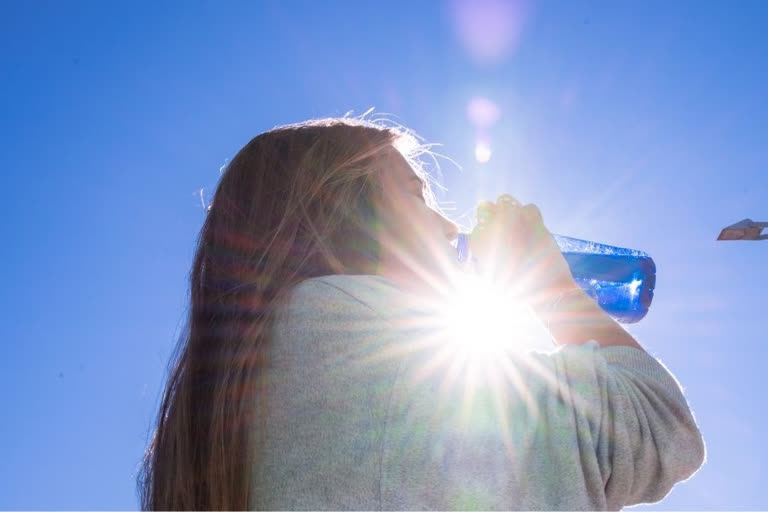The intense heat of the sun during summers can at times take a toll on health, causing heat exhaustion or heat stroke. Therefore, it becomes necessary to take proper precautions before stepping out of the house, as heat stroke at times can be fatal also.
Understanding heat stroke
The Centers for Disease Control and Prevention (CDC) states, “heat stroke is the most serious heat-related illness. It occurs when the body becomes unable to control its temperature: the body’s temperature rises rapidly, the sweating mechanism fails, and the body is unable to cool down. Body temperature may rise to 106°F or higher within 10 to 15 minutes. heat stroke can cause death or permanent disability if emergency treatment is not provided.”
Dr. Rajesh Vukkala, MD (General Medicine), Consultant Physician at VINN Hospital, Hyderabad, explains that when one steps out in heat for prolonged hours, he/she may face ‘heat exhaustion’, where the body’s physiological demands are still met by the body, without any compromise. But when the body is unable to meet its requirements, it escalates to heat stroke. This condition is more common in older adults, above the age of 50 years and when the temperature in the surrounding is more than 40ºC”.
Effects of heat stroke
An Indore-based General Physician, Dr. Subhash Batra mentions that a heat stroke usually occurs due to prolonged exposure to direct sunlight in the summer season. The problem is more prominent in people who suffer from dehydration. He explains that in case of a heat stroke, the body’s temperature can rise up to 104 degrees Fahrenheit or even higher, which can be fatal. Some other symptoms include- Confusion, Dizziness, unconsciousness or coma, Rapid heart rate, rapid breathing, dry skin, skin redness, headache, etc. It can also cause
What to do in case of a Heat Stroke?
Dr. Subhash says that in the summer season, one should be extra cautious about health and aware of the symptoms of heat stroke. In case you or a person next to you experiences the symptoms of heat stroke, contact a doctor immediately. Some other things to remember are:
- Bring the patient indoors in a shaded, cool and well-ventilated place, till medical help is received.
- Try to lower his/her body temperature. For this, the person can be made to lie in a tub or made to stand under a shower.
- Use wet towels, sponge, ice packs or cold water spray to keep the victim’s forehead, neck, armpits and feet cool.
- If the person is conscious, give him/her plenty of fluids to relieve dehydration.
How to prevent?
- Try to avoid stepping out in the sun between 11 AM to 3 PM, especially during summers, when the temperature is at its peak.
- If you step outside, make sure you are wearing loose-fitted, light-colored, cotton clothes, so that the air can circulate around your body. Wear a cap or hat to protect yourself from the sun, or you can also carry an umbrella.
- Always carry a water bottle and sip water frequently, instead of gulping it down all at once.
- Try to keep yourself hydrated all the time and eat fruits that have a higher water content like watermelon or muskmelon.
- Whenever you step out, try to stay under shade and apply sunscreens with at least 30 SPF to keep the skin protected from sun exposure.
- Avoid consumption of alcohol, cold drinks and drinks containing caffeine, to avoid dehydration.
Also Read: Tips to take care of your little ones during summer



